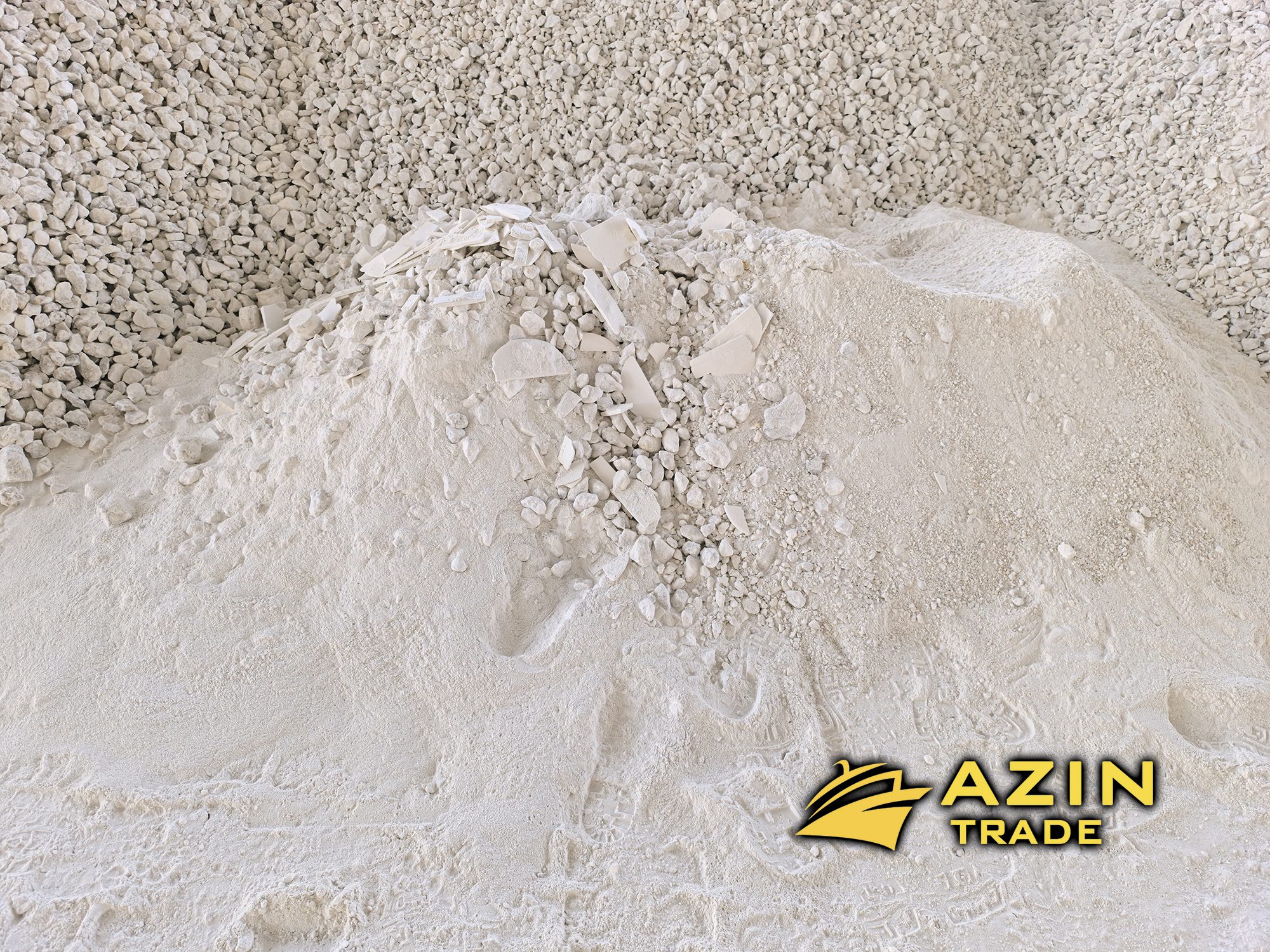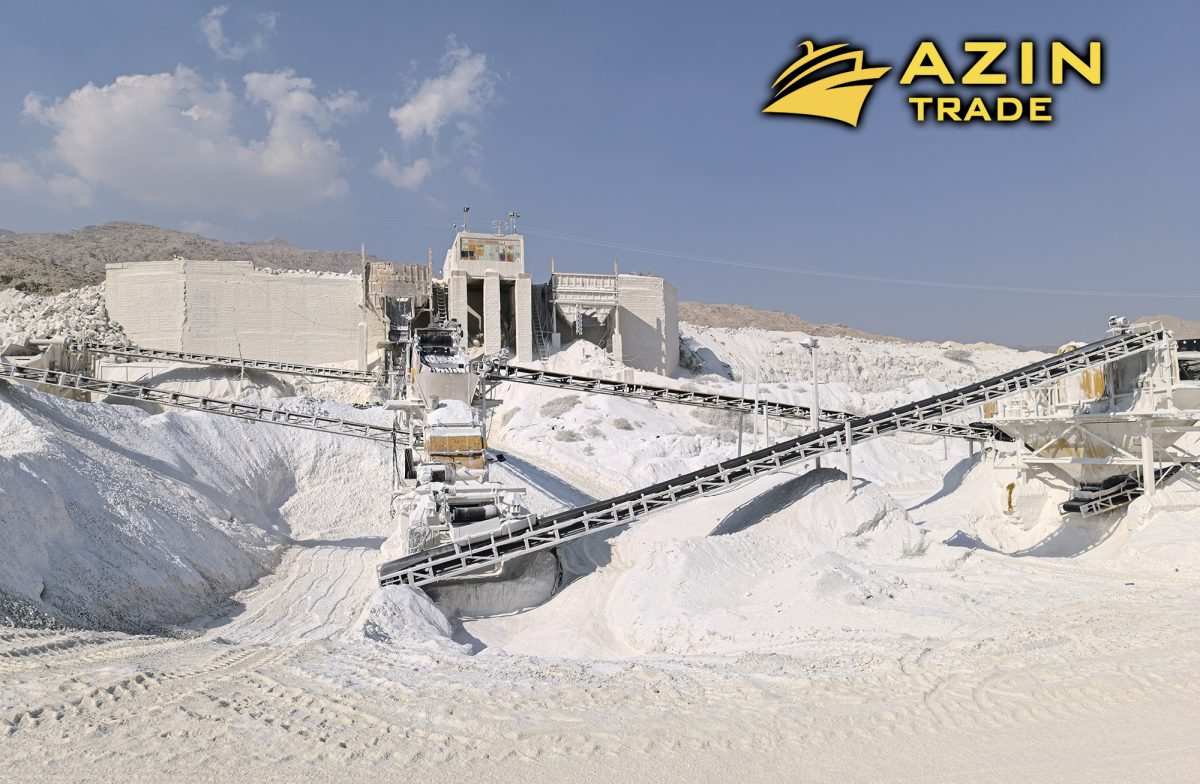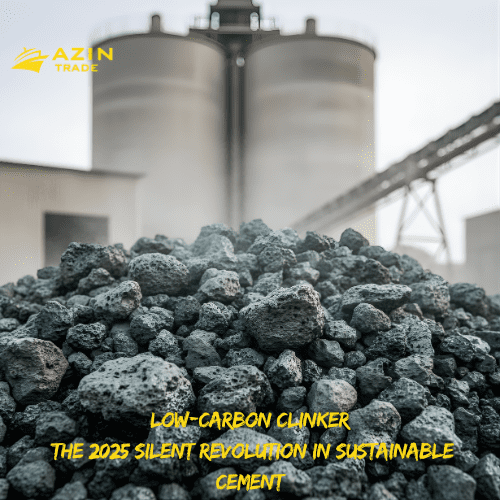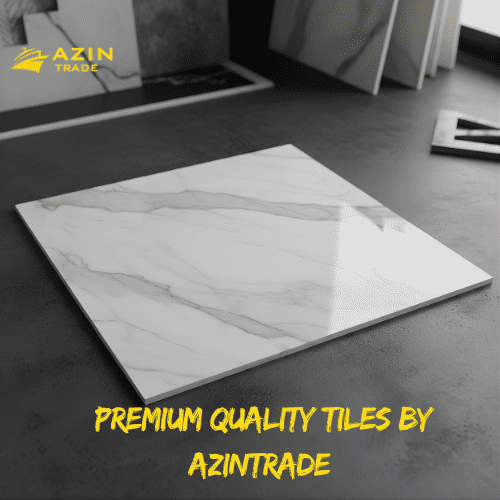Iranian Gypsum: A Growing Power in the Global Building Industry
Iran’s gypsum industry is expanding steadily, benefiting from the country’s vast natural reserves and strategic position in the global market. With gypsum playing a fundamental role in construction and building materials worldwide, Iranian gypsum has found its place as a competitive export to several neighboring and international markets, including Iraq, China, Afghanistan, Russia, Armenia, Turkmenistan, Georgia, India, Kuwait, Qatar, Jordan, and Oman. As global demand for gypsum continues to rise, Iran’s robust supply chain and mineral wealth make it a key player in the industry.
The Role of Gypsum in Construction and Beyond
Gypsum is a versatile mineral with unique properties that make it highly valued in the construction sector. Known for its ability to produce smooth, fire-resistant surfaces, gypsum is commonly used in plaster, drywall, and cement products, offering a durable and efficient solution for building materials. Its composition, primarily calcium sulfate dihydrate, allows it to set quickly and resist fire, which makes it a preferred choice for interior walls, ceilings, and partitions in buildings. Beyond construction, gypsum’s uses extend to agriculture as a soil amendment and to the medical field in casting materials, further underscoring its versatility.
Iran’s gypsum, in particular, is highly valued for its purity and quality, making it attractive to buyers who seek dependable building materials. Its ease of extraction and processing allows for a steady supply, meeting demand across multiple sectors and regions.
Iran’s Extensive Gypsum Reserves
Iran holds some of the world’s largest gypsum reserves, estimated at over a billion tons. These deposits are located across several provinces, with major reserves in regions such as Semnan, Khorasan, Fars, and Hormozgan. The high quantity and accessibility of these deposits give Iran a competitive advantage in the global market, allowing it to offer gypsum at attractive prices. Compared to other gypsum-producing countries, Iran benefits from lower production costs due to its favorable mining conditions and affordable labor force.
The proximity of Iranian gypsum mines to the Persian Gulf provides easy access to sea routes, facilitating cost-effective exports to the Middle East, South Asia, and beyond. This logistical advantage has made it relatively easy for Iranian companies to penetrate neighboring markets, solidifying their place in regions where the demand for gypsum is high.
Gypsum Exports: Iran’s Strategic Markets
Iranian gypsum is exported to a diverse range of markets. Each destination comes with its own unique needs, creating opportunities for Iran to customize and expand its offerings:
- Middle Eastern Markets: Iraq, Kuwait, Qatar, and Jordan are some of the key Middle Eastern destinations for Iranian gypsum. Infrastructure development, urban expansion, and rising housing demands in these countries create a consistent need for building materials. As a close regional supplier, Iran has built a strong presence, capitalizing on the affordability and quality of its gypsum products.
- Asian Markets: China and India, two of the largest markets for construction materials, rely on gypsum imports to meet their rapidly growing needs. Iran's proximity and ability to deliver large quantities of gypsum make it a suitable partner. In addition, Afghanistan, Turkmenistan, and Armenia, countries that share borders or historical trade ties with Iran, also import significant quantities of gypsum for construction and industrial purposes.
- European and CIS Markets: As construction activity grows in countries like Russia and Georgia, demand for gypsum as an economical and effective building material has followed. Iran's gypsum exports have been well-received in these regions due to their high quality and Iran’s competitive pricing.

Advantages of Iranian Gypsum in the Global Market
Iranian gypsum holds several competitive advantages that make it particularly appealing on the international stage:
- High Purity: The gypsum extracted from Iran’s reserves has a high level of purity, which is a key factor in its attractiveness for export. Purity is essential in producing high-quality gypsum products, from plaster and wallboard to industrial applications.
- Cost-Effective Production: The cost of gypsum extraction and processing in Iran is comparatively low due to affordable labor, an abundance of raw material, and favorable mining regulations. This allows Iranian exporters to offer competitive prices without compromising on quality.
- Proximity to Major Markets: Iran’s geographic location is advantageous, allowing for shorter shipping times and reduced transportation costs to major markets in Asia and the Middle East. This advantage is essential in maintaining Iran’s competitive position, especially in markets that have high construction demands.
- Adaptability to Market Needs: Iranian gypsum exporters have shown the ability to meet the specifications required by different markets. This adaptability is crucial for meeting the unique demands of each destination, from purity levels to particle size and packaging standards.
Challenges and Opportunities for the Iranian Gypsum Industry
While Iran’s gypsum industry is experiencing success, it also faces a few challenges that could impact its growth potential:
- Economic Sanctions: International sanctions on Iran can sometimes affect trade relationships, financing, and access to global markets. However, Iranian gypsum exporters have adapted by focusing on regional markets and building partnerships that help mitigate the impact of these restrictions.
- Global Competition: Countries like Thailand, the United States, and China are also major producers of gypsum, leading to strong competition in the global market. Iran’s ability to maintain competitive pricing and quality will be crucial to continue its growth in these regions.
- Environmental Considerations: As the global construction industry becomes more conscious of its environmental impact, the gypsum industry will need to address sustainability issues. Fortunately, gypsum is an eco-friendly material that can be recycled and has a lower environmental impact than other building materials. Iranian companies are increasingly exploring more sustainable mining and production practices, which could further bolster the reputation of Iranian gypsum in the eyes of eco-conscious consumers.
Despite these challenges, the future of Iran's gypsum industry appears promising, with ongoing investments in mining technology and export infrastructure expected to support continued growth.
Azintrade: A Leader in Iran’s Gypsum Export Market
Azintrade, a prominent player in the Iranian gypsum market, is making strides as a leading exporter of high-quality gypsum. The company’s commitment to rigorous quality standards has earned it a reputation as a reliable supplier in various international markets. By leveraging its strategic location and high production capacity, Azintrade ensures timely and efficient deliveries to its clients worldwide.
Beyond exporting raw gypsum, Azintrade has expanded its product offerings to include processed gypsum products, such as gypsum powder and plaster. This diversification enables Azintrade to meet the specific needs of various markets, providing end-users with value-added options for their construction projects. The company’s emphasis on sustainable practices and innovation further positions it as a forward-thinking leader in the industry.
With a customer-centric approach, Azintrade has built strong relationships with buyers across the Middle East, Asia, and CIS countries. Its efforts to invest in efficient logistics and infrastructure continue to strengthen Iran’s role as a leading supplier of gypsum and related products.
The Future of Iran’s Gypsum Market
The demand for gypsum is expected to grow as construction activity increases globally. Iran’s gypsum industry, backed by large reserves, an efficient supply chain, and competitive pricing, is well-positioned to meet this demand. Investments in mining technology, sustainable practices, and enhanced export strategies will likely further boost Iran’s competitiveness in the global market.
As companies like Azintrade continue to expand their reach and offer value-added products, Iran’s gypsum industry is poised to strengthen its role in the global building materials sector. In a world increasingly focused on sustainable and efficient construction materials, Iran’s gypsum offers a promising solution to meet these modern needs.
In conclusion, Iran’s gypsum industry is a vital component of the country’s export economy and a valuable asset in the global construction market. With extensive reserves, strong export capabilities, and a growing presence in international markets, Iran’s gypsum is well-equipped to play a prominent role in future infrastructure and development projects worldwide.




